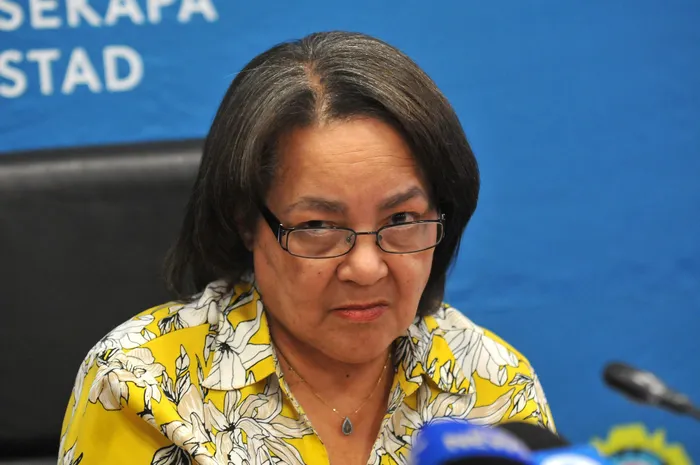De Lille digs in heels on managing #WaterCrisis

Mayor Patricia de Lille File photo: INLSA Mayor Patricia de Lille File photo: INLSA
Cape Town Mayor Patricia de Lille has come out fighting against a recommendation from the DA's federal
executive that managing the water crises in the Mother City be removed from her responsibilities.
In an interview with Independent Media, De Lille spelt out the steps that her administration had taken in managing Cape Town's water crisis and that it had been proactive when it was not required to do so by all accepted standards.
De Lille says she had sought a legal opinion from the City of Cape Town's legal services department on the recommendation of the DA's federal executive.
The legal opinion confirmed De Lille’s powers to appoint a Water Resilience Advisory Committee in terms of the Municipal Structures Act, and she also had the power to delegate specific responsibilities to mayoral committee members.
“In line with this, the authority given in the resolution to item C07A/05/17 and the resolution to item C29/08/17, the responsibility to chair the Water Resilience Advisory Committee was allocated to councillor (Xanthea) Limberg. Nevertheless, the function of that committee remains, as indicated in the wording of section 80 of the Structures Act, to assist the mayor,” read the opinion.
De Lille said the DA's move to take away her responsibilities was inexplicable, considering what the City had done to avoid a crisis of Day Zero when the taps run dry.
She said the City had freed up R1.4billion in an adjustment budget, approved by Finance Minister Malusi Gigaba, to fund capital expenditure and R258 million for operation expenditure finance to respond to the water crisis.
“We have a two-pronged strategy. The one is to drive down demand and the second is to show what we are doing as a City to bring on additional water. In January 2016, Capetonians as a whole were using 1.1 billion litres of a water a day. As we speak now, Capetonians have decreased their water usage to 587 million litres per day, so the messages work to drive down demand,” said De Lille.
In terms of augmenting sources of water, De Lille said her administration had prioritised desalination, treating waste water and using underground water.
While the City had promised that additional water sources would get on line by the end of August 2017, which was then pushed to the end of October, De Lille admits this did not materialise.
These failures prompted De Lille to insist her Water Resilience Task Team meet every day to resolve stumbling blocks, such as in the City's supply chain management.